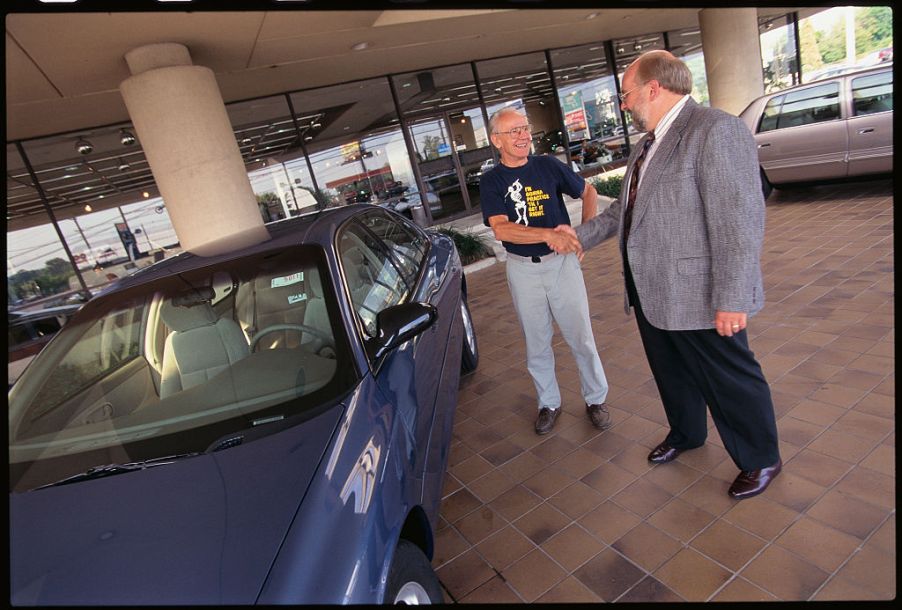
How Much Do Car Salespeople Actually Get Paid?
When I sold cars, one of the typical questions I received was “How much do you get paid?” It’s a loaded question, not because it’s sales and there are the inherent “ups and downs” depending on the month, but mainly because the pay plan is usually pretty confusing and it varies from dealership to dealership. But here is one way to answer that question.
It’s all in the math
Salespeople get paid on the net profit for each car they sell, and even then they only make a percentage of that profit, which is typically 25 percent. But it could range from 20 to 30 percent depending on the dealership’s pay plan.
The net profit is the difference between the invoice price (the dealer’s cost of the car) and the actual price that the car sells for.
To explain it somewhat easier, I’ll take an example from Chron’s story on this topic. If the invoice price of a car is $25,400 and the selling price is 5 percent above that ($26,670), then the net profit would be $1,270. If the sales commission is 25% of the net profit, then the salesperson would make $317.50 for selling that car.

It gets lower
That’s a pretty decent wage, but what happens if the car sells under invoice price?
Most people never believed me when I told them that the dealership really does lose money on a lot of the new cars they sell. But it happens every time they sell a car for under invoice price.
How do they stay in business? They make up for it with finance deals, used car deals, and most importantly, the service department. But that’s beside the point.
The point is, whenever a car is sold for under invoice, the salesperson makes the minimum amount they can make on a deal. Also known as a “mini.”
Just like the commission percentages, the amount of mini can vary on the pay plan, but it’s usually about $200.
That probably doesn’t sound too bad, but factor in the amount of leg work, stress, and thinking that goes into working a deal, and it might not look so good.
A typical deal can last 4 hours and sometimes you have to split it with another salesperson if you’re working with their customer while they’re busy with another.

Personal experience
One personal experience I had when having to split a mini was when I worked at my first dealership. The customer had arrived when the salesperson was busy, so I took care of them.
They were shopping for a minivan, so I took them through all the options, test drove them in three different vans and answered all their questions (which took about an hour and a half).
When they finally decided on one, we went back to my desk to talk about the pricing. Now, it’s supposed to be easy, you know, like paying for any other product. But they insisted on getting the price lower and lower.
This took about another hour and a half because I kept having to get approvals from the sales manager for pricing. (Yes, that is a real thing)
When we finally settled on a price, I got the van cleaned up while the customer waited to see the finance manager and sign the final contract. (This usually takes another hour or two depending on how many people are waiting to see the finance manager, and how many cars are being washed)
When it was all said and done, the customer told me that he had no way of getting the car back to his house since he has his old car. Since we prided ourselves on customer service, I drove the new van back to his house (30-minute drive), and then he brought me back after.
In total, that was about 4-5 hours spend with one person, plus the stress of them grinding me about pricing.
I could tell he felt like he had won at the end (which he did), and when he dropped me back off and I was getting out of the car, he asked, “Hey Joe, how much did you make on this deal anyway?”
“I had to split it with someone else, so $100.”
His smile quickly turned into a slight frown, and I closed his door.
Not as much as you think
Car salespeople don’t make as much as you think and they have to sell a lot to make a decent wage. Just be sure to keep this in mind when you buy a car because you’re not the only one making an investment.



